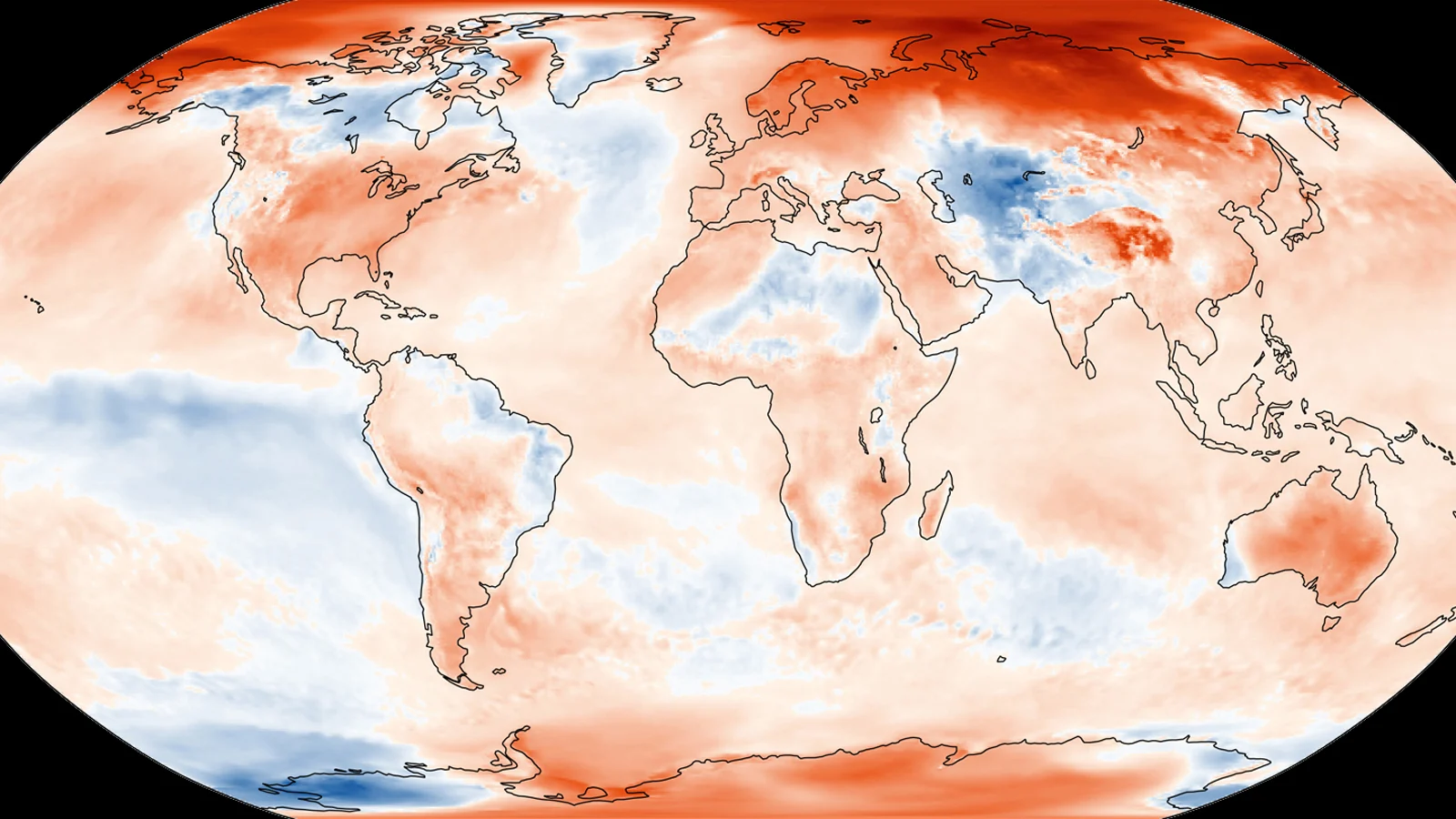
Approaching year’s end, 2020 is now neck-and-neck with 2016 for hottest year
After one of the hottest Novembers we've seen, it comes down to December to decide 2020's final ranking in the record books.
Will 2020 take the title of warmest year on record? After months of record or near-record heat this year, it's coming down to a neck-and-neck race with 2016.
NASA, NOAA, the Japanese Meteorological Agency, and the European Union's Copernicus Climate Group have all weighed in on global temperatures for November 2020. According to NASA, the month surpassed all previous Novembers as the hottest recorded so far, with a global temperature average of 1.14°C above the 1951-1980 average. That exceeds 2015's previous record of 1.06°C.
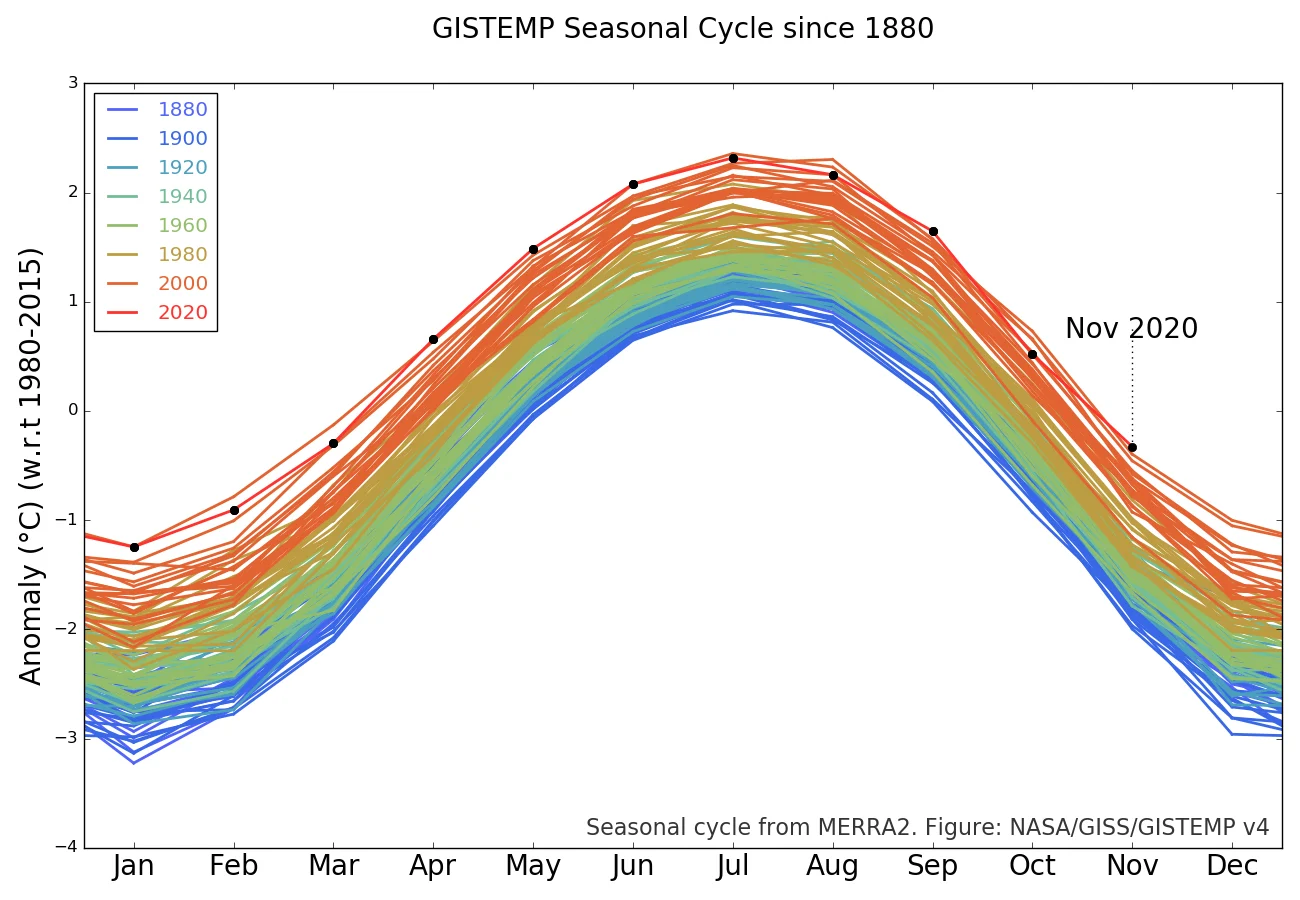
This plot of monthly temperature anomalies (with respect to the 1980-2015 annual temperature average) takes into account the seasonal cycle and reveals November 2020's ranking as the hottest month of November in 141 years of record-keeping. Credit: NASA/GISS
Due to extreme heat over the Arctic and most land masses of the globe (including Antarctica), this November came in as hotter than even November 2015, when the planet was experiencing the peak of a record-breaking El Niño in the equatorial Pacific Ocean.
In their monthly summary, Copernicus said, "The month was 0.77°C warmer than the 1981-2010 average for November, the warmest November in this data record by a clear margin, and 0.13°C warmer than the previous warmest Novembers, which were in 2016 and 2019."
According to NOAA, November's temperatures came in at 0.97°C above the 20th century average of 12.9°C. This was the second warmest November in the 141-year global record, behind November 2015's record of +1.01°C. Notably, however, it was the hottest month of November on record, specifically over land. It was only cooler ocean temperatures through the southern hemisphere and the La Niña in the Pacific that allowed November 2015 to retain its spot at the top of the heap.
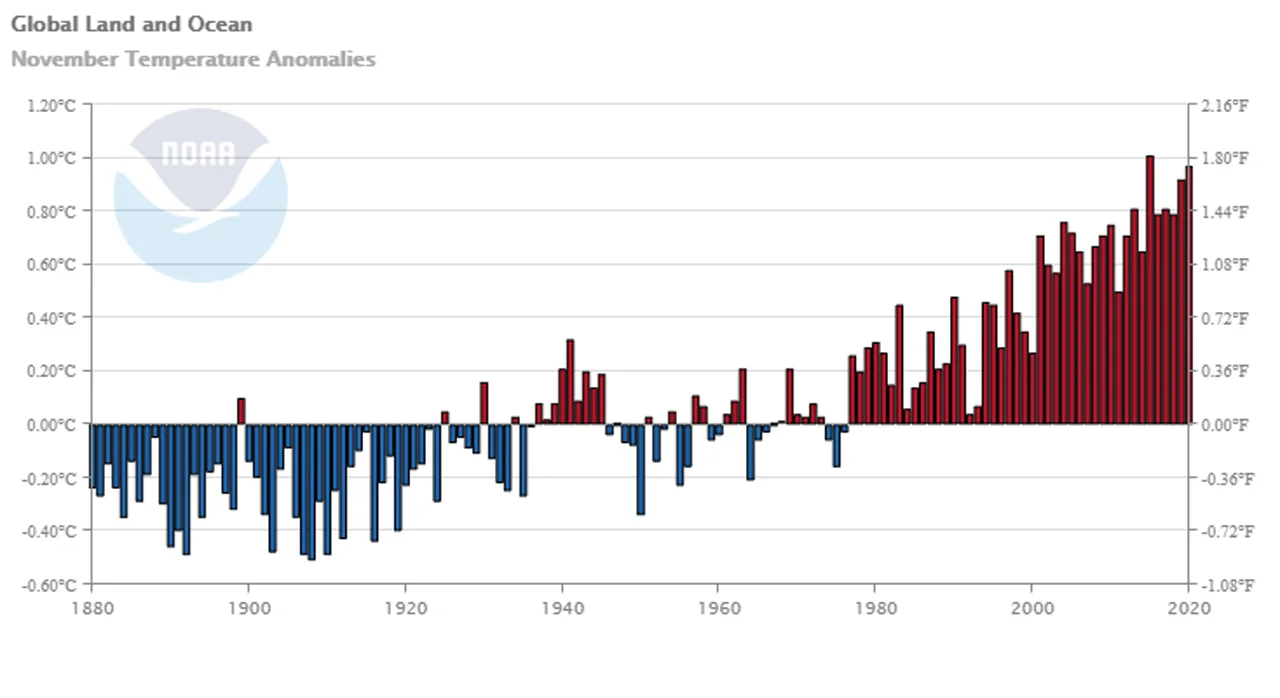
Of all November monthly temperature records, going back to 1880, November 2015 still stands at the hottest in NOAA records, with November 2020 just tenths of a degree behind. Credit: NOAA NCEI
JMA records agree with NOAA, putting November 2020's temperatures (+0.45°C above the 1981-2010 average) in second place behind 2015.
Note that the specific values from each agency differ due to how each collects and processes the data and exactly what period in the records they base their comparisons on — 1951-1981 vs 1981-2010 vs the 20th century. More importantly, though, despite these differences, all of the data sets still reveal the same overall trend: global temperatures are rising.
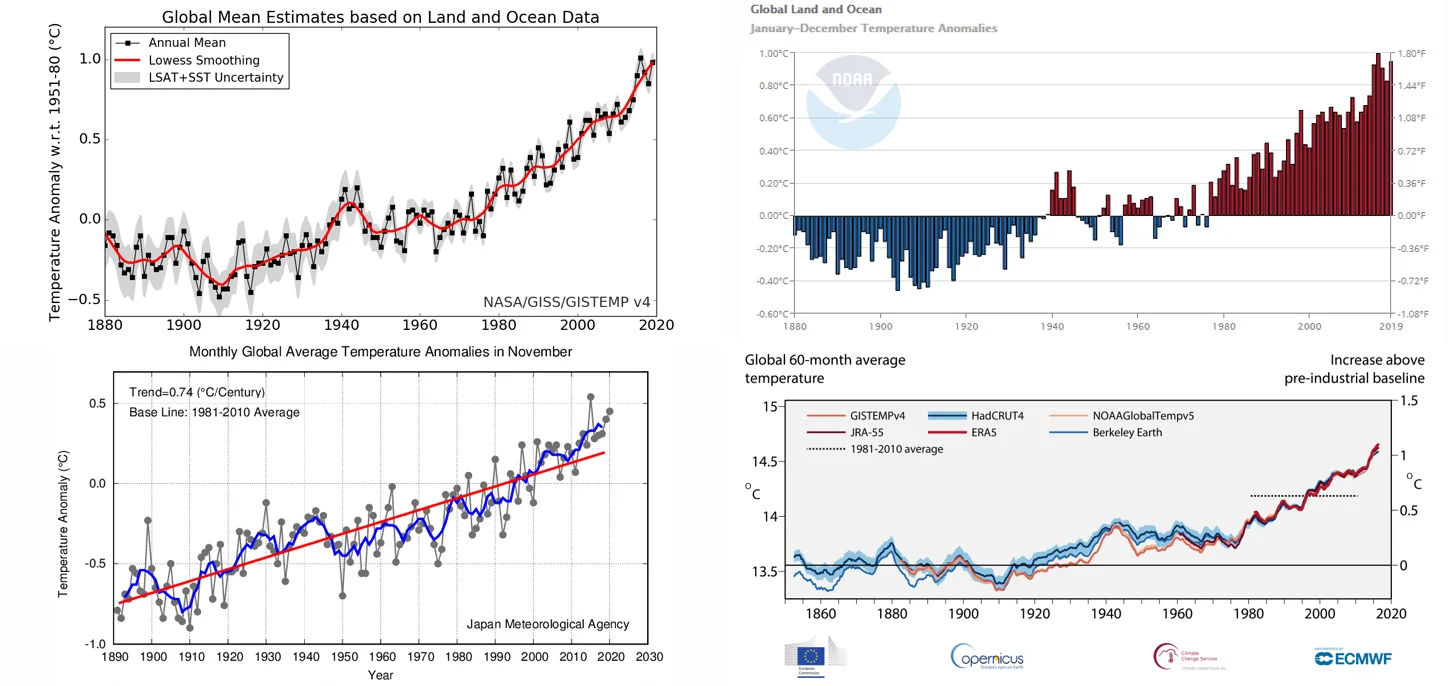
Annual temperature graphs from multiple sources reveal the same temperature trend since the late 1800s. Credit: NASA/NOAA/JMA/Copernicus
WHERE DOES 2020 STAND?
With another record or near-record month for heat added to this year's tally, even with only one month left to go, 2020's standing is still up in the air.
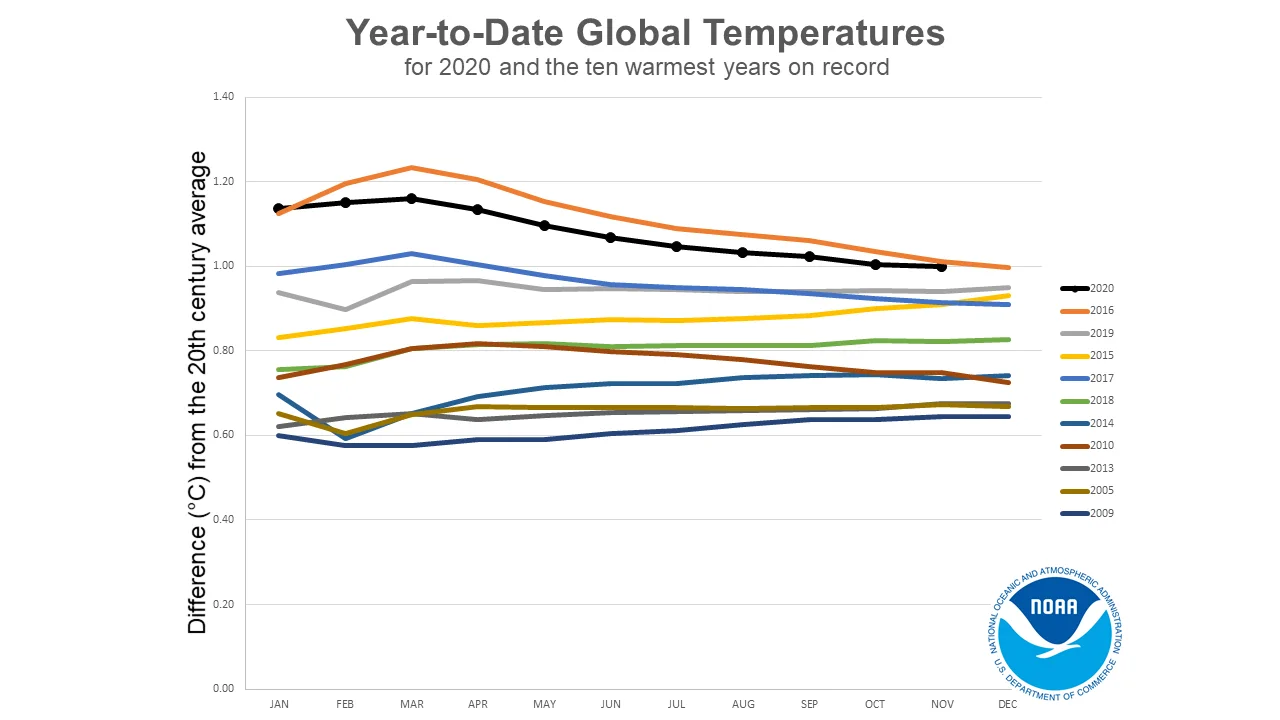
Year-to-date global temperatures for 2020 so far have the year closing in on 2016's current standing as the hottest year on record. Credit: NOAA NCEI
Based on their records so far, NOAA puts 2020's chances at roughly 55 per cent for becoming the next hottest year on record. That is quite remarkable, given that 2016 was a year that was still feeling the impacts of a record-setting El Niño, in addition to the persistent warming from greenhouse gases. In contrast, we currently have a La Niña pattern in the Pacific, which usually cools things off significantly. Still, it is simply not having a big enough impact around the world.
Based on other predictions, however, NOAA's forecast may be a bit conservative.
As Zeke Hausfather, the Director of Climate and Energy at the Breakthrough Institute, posted on Twitter, 2020 is the "odds-on" favourite to be the warmest on record.
Just this week, Gavin Schmidt, the Director of NASA's Goddard Institute for Space Studies, posted that the likelihood of 2020 becoming the new record-holder in NASA's GISTEMP dataset is now greater than 90 per cent.
It is possible that this year, different temperature records may disagree about where 2020 belongs in the record books. Some may rank it as warmest, while others place it as tied with 2016 or even put it in second place. It's going to be a very close finish, in any case. The final tally will come in mid-January.







